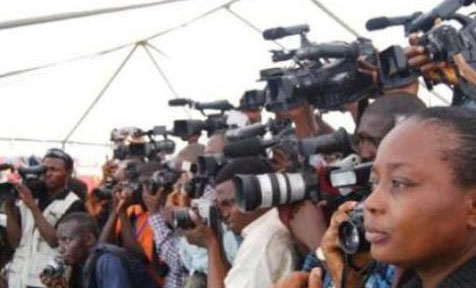In a nation wrestling with waves of insurgency, banditry, and civic unrest, a new force is quietly but powerfully stepping into the security arena—not with weapons, but with words, stories, and truth. That force is the Nigerian woman journalist.
At the maiden Zonal Conference of the Nigeria Association of Women Journalists (NAWOJ) Zone D, held at the International Conference Centre Pavilion in Abuja, participants didn’t just speak—they stirred a movement. Under the theme “Curbing Insecurity: The Role of Women Journalists in National Security,” the event reimagined journalism not as mere reportage but as a strategic tool for nation-building.
From the opening session, it was clear this was no ordinary gathering. Federal ministers, security experts, and journalists from across the country converged—not just to talk, but to chart a new path forward.
The Honourable Minister of Information and National Orientation, Mohammed Idris, struck a resonant chord when he declared women journalists “pillars of national security.”
He argued that in a world dominated by misinformation and polarisation, their credibility, compassion, and community insight position them uniquely to combat falsehoods and promote unity. “These women are more than reporters,” Idris said. “They are the first to reach forgotten corners, the first to report on the voiceless, and often, the last to give up when truth is under siege.”
His message was echoed by Minister of Women Affairs, Imaan Sulaiman-Ibrahim, who painted women journalists as “architects of truth and defenders of justice.” Drawing a direct line between media narratives and national transformation, she emphasised that security begins not in barracks, but in minds, and women journalists shape those minds.
“Every story you tell can either stitch us together or tear us apart,” she told the audience. “The government can roll out programmes, but without you, the message won’t reach the hearts that matter.”
Sulaiman-Ibrahim referenced flagship social initiatives like the Nigeria for Women Programme and the National Family Strengthening and Development Programme, urging the media to amplify their impacts in ways that resonate locally.
For Minister of State for the Federal Capital Territory, Dr. Mariya Mahmoud, the stories women journalists tell in the aftermath of conflict—about displaced families, neglected communities, and silent traumas—are just as critical as any security operation. “You carry the torch into dark places,” she said. “Whether it’s Boko Haram territory or the hidden scars of domestic violence, you’re doing the kind of frontline reporting that shapes public empathy—and public action.”
Mahmoud noted recent improvements in security infrastructure within the FCT, but emphasised that real change comes when people trust the institutions protecting them. That trust, she argued, must be earned—and the media plays a key role.
Still, even as participants spoke boldly about women’s roles in transforming national security, there was a sobering self-awareness about the hurdles they face: gender-based harassment, institutional bias, and glass ceilings that continue to limit leadership roles in newsrooms.
“We can’t talk about changing Nigeria’s security story without changing our own story first,” said Zone D Vice President Chizoba Ogbeche. “This conference isn’t about talk. It’s about strategy. It’s about accountability.”
Ogbeche underscored the vital work women journalists already do—covering insurgencies, reporting human rights abuses, and giving texture to the statistics that often dominate security headlines. But she called for deeper collaborations with academia, civil society, and policymakers to ensure their work drives real reform. In one of the most stirring moments of the day, Ogbeche turned to young female reporters in the room and issued a rallying cry:
“You’re not just here to chase scoops. You’re here to safeguard democracy. You’re part of the Fourth Estate—and that means power, responsibility, and purpose.”
By the close of the conference, the message was undeniable: women journalists are no longer on the sidelines of the security conversation. They are emerging as key actors in shaping Nigeria’s future—not just reporting on the crisis, but becoming part of the solution.
THE GUARDIAN


